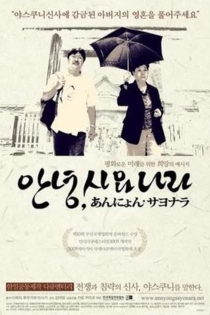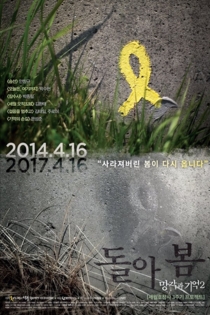
Kim Tae-il
1963 (63 года)Jam Docu 강정
Kim Tae-il, Choi Jin-sung
Gangjeong Village, located at the southernmost part of Jeju Island's Seogwipo City, is in the true sense a 'breathtaking land of water.' In this film, eight directors independently yet collaboratively orchestrate a clever and humorous "mission" at this place where the groundwork for building a naval military base is in progress.
Jam Docu GangJeong
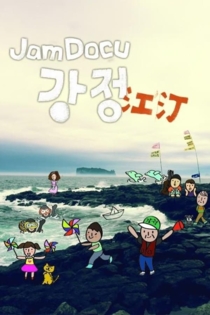
올 리브 올리브
Kim Tae-il, Ju Ro-mi
Wizdan
Wizdan lives in the rural village of Sebastia. Both their parents are olive farmers. With the expansion of Israeli settlements, Wizdan's and Nidal's parents are losing their farmland, but the problem is not theirs alone. But many Palestinians have been living in refugee camps for almost 70 years, and the fourth generation of refugees are growing up in refugee camps today. They struggle to guard their land despite repeated humiliation, and the film focuses on the resistance of such ordinary Palestinians including Wizdan's family.
All Live, Olive
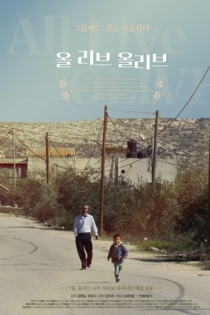
오월愛
Kim Tae-il
This year is the 30th anniversary of the Gwangju Democratization Movement. Though the country commemorates the event as the official historical records, it does not include any 'real' accounts of the people who experienced it firsthand. The students who were part of the movement; the female vendors who made rice balls for the students; the female high school students cooked at the government building; now, past their middle age, they live as ordinary citizens in Gwangju city. How is the event remembered by these people?
No Name Stars
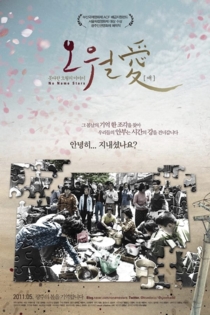
Annyeong, Sayonara
Kim Tae-il, Kumiko Kato
Hee-ja Lee
This joint Korean-Japanese production follows a Korean woman, Lee Ha-jong, as she searches for her father's remains. He - like tens of thousands of other Koreans - was forced into the Japanese military, and subsequently killed during WW2. She is joined by a Japanese man, seeking reconciliation between his country's military past, and the countries victimized by that history. The filmmakers portray both sides of a still highly emotional debate that centers around the enshrinement of soldiers at the Yasukuni Shrine, and Lee's lawsuit to prevent her father from being enshrined there. As Lee visits Japan and the controversial Yasukuni Shrine, she confronts - and is confronted by a wall of nationalistic pride that might be compared to neo-Nazis defending the righteousness of The Reich. This is contrasted with her meeting and working with Japanese peace activists, who deplore their countries' militaristic past, and seek to heal the wounds with her neighbors.
Annyeong, Sayonara
